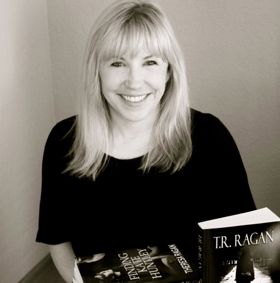(Editor’s Note: As we have mentioned beforethe U.S. Department of Justice (DOJ) has filed a major antitrust lawsuit against Apple and the five original “agency model” publishers charging them with a massive price-fixing conspiracy in violation of federal law. The DOJ Antitrust Division and the court wants to hear from members of the public during a 60-day comment period on the lawsuit which expires June 25, and what follows is my letter to the court. Please see this post for instructions on how to submit your comments. –Stephen Windwalker.)
June 18, 2012
Via Priority Mail
John Read, Chief
Litigation III Section
Antitrust Division
U.S. Department of Justice
450 5th Street, NW, Suite 4000 Washington, DC 20530
Dear Mr. Read,
I am writing to you both as an individual citizen, reader, author, and former independent bookstore owner, and also as the founder of the Kindle Nation Daily website, one of the largest active communities of ebook readers and enthusiasts. Along with tens of thousands of other avid readers and thousands of other authors who are associated with the Kindle Nation Daily community, I am keenly interested in the Department of Justice’s (DOJ) civil antitrust action (United States v. Apple, Inc. et. al., Civil Action No. 12-CIV-2826) against Apple, Inc., and five of the largest U.S. book publishers (defendants). My purpose in writing this letter is to share and underline several points that I believe should be central points of emphasis for the DOJ and the courts as this case proceeds and legal remedies are considered.
My single most important point is one that I am sure the DOJ and the court understands well, but which appears to be a matter of confusion for many others: the major parties in this case are the six defendants (Apple and the five publisher defendants) and the DOJ, which is empowered here to act on behalf of consumers. While it ought to be obvious that this is so, and that the alleged collusion has robbed tens of millions of dollars from American consumers and denied them the opportunity to read millions of other books that they deemed they could not afford, many who have commented on this case have tried to shift the focus, from this irreparable harm to consumers, to the consequences of judicial action for other interested entities who are not parties to the case, including Amazon, Barnes & Noble, and countless other booksellers, authors, literary agents, and other intermediaries and players in the book business. As recently as today the headline in the New Yorker’s coverage of the case demonstrates this confusion: “Paper Trail: Did publishers and Apple collude against Amazon?” Of course it would be naive not to recognize the importance of the case to these players, but to seat them at the table as parties is to miss the point of the irreparable harm to consumers.
In an effort to place the primary focus where it belongs, I would like to offer the following points and perspectives:
1. By colluding to raise new-release ebook prices by 30 to 100 percent, the defendants have caused irreparable harm to millions of readers of all ages, including public school and college students and other children, families, and people of limited means who bought ebook readers or downloaded free Kindle apps based on the affordability of ebooks before the defendants imposed the agency model. Prior to the launch of the Kindle it was widely believed that reading was on the decline in the U.S., as noted by the late Steve Jobs when he declared early in 2008 that the Kindle was a flawed concept “because nobody reads any more.” Among the reasons for the decline of long-form reading were rising prices for new hardcovers and paperbacks, the closing of many public library branches and bookstores, and the diminishing selection of physical books offered to the American public through existing distribution channels. The launch of the Kindle in 2007 and the fact that Amazon made Kindle apps free for anyone with a smartphone, a computer, or a Kindle meant that any reader could have a well-stocked bookstore at their fingertips just about anywhere in the U.S. and beyond. The Kindle platform succeeded because of its catalog, convenience, competitive pricing, and Amazon’s customer base and unflinching commitment to the platform, and its success has helped to fuel a resurgence in reading that is bridging the digital divide across class and age lines. The Kindle store pricing that some of the defendants and other Amazon critics demonize as “predatory” has had a wonderfully positive effect on this resurgence in reading, and has social, economic, and cultural value far beyond anything that would be achieved, for instance, by propping up the defendant publishers or another player like Barnes & Noble.
2. Illegal collusive behavior must not be separated from the consequences of that behavior, either in the punishment of the behavior or in the remedies proposed. Many of the more thoughtful critics of the DOJ action have taken pains to state that they have no knowledge or legal expertise about the collusive behavior alleged by the DOJ, but such behavior and its objectives are and must remain at the center of this case: the DOJ alleges with an impressive recitation of evidence that the defendants participated in an unprecedented conspiracy to force retailers to raise their new-release ebook prices by 30 to 100 percent. If that’s what happened, the defendants must be punished and retailers must be allowed to restore competitive pricing. For the publisher defendants to claim no wrongdoing after they kept their corporate counsel out of the rooms in which the collusion allegedly occurred is, if the defendants acted as alleged by DOJ, an insult to the court and to all interested parties. When companies collude or conspire to raise prices to the detriment of consumers, they know full well that they are on thin ice. In this case, because of the defendants’ collusion, consumers paid tens of millions more than they would otherwise have had to pay for ebooks. In countless other cases they had to refrain from buying ebooks they hungered to read. Because of what the defendants did, they should not only have to stop doing it, but they should remain under close regulatory scrutiny (as spelled out in the proposed settlement) for years, and they should be required to pay tens of millions, and ultimately perhaps hundreds of millions, in actual and punitive restitution to consumers.
3. The U.S. publishing industry is fond of saying that “the DOJ doesn’t understand the book business.” However, the defendant publishers and their associated intermediaries and gatekeepers arrived in the 21st century very poorly prepared for the future either in their fundamental economic cost structure or in their commitment to invest in innovation. The industry’s major players do not deserve any fate other than that which a collusion-free marketplace holds for them. On the other hand, over the past decade, increasing numbers of authors, booksellers, publishers and others have combined innovation, the use of new technologies, and some risk-taking to circumvent what many feel has become a rather calcified literary-industrial complex and instead established new and profitable models for making more direct connections between authors and readers. In spite of the fact that readers are paying less for ebooks than they have paid in the past for print books, most of the authors of distinction who are taking a direct route to publishing are earning greater royalties than they would ever have received from traditional publishers. They have shortened the publishing timetables from years (or in some cases decades) to months or weeks. While traditional publishing players lament the costs, for themselves, of disintermediation, tens of thousands of others are clear winners in a world where intermediaries are no longer sheltered from the need to prove their worth. The defendants and their apologists have attempted to lock in the wastefulness and flawed economic decision-making of the industry and its intermediaries by passing their costs on to consumers in the form of the 30 to 100% price increases imposed by the agency model, but claims that DOJ should protect the intermediaries in the publishing world have neither a legal basis nor any value for the culture or the country. It would be more accurate for publishers to say that the DOJ “doesn’t understand our book business the way that we understand our book business.” That would be fair in a certain sense, but the truth is the publisher defendants’ focus on their own understanding of how the publishing business used to work has kept them from evolving and understanding how the publishing business works now, and how it may work for at least a few years in the future.
4. The U.S. book publishing and bookselling business has been undergoing enormous change and disruption for decades, but the book trades are not a public utility. It is not the role of government or the courts to prop up the industry or any of its players. It would be especially inappropriate for the government or the courts to manage the aforementioned change and disruption so as to punish innovators, provide life support for second- and third-movers or protect industry players whose demise may be imminent due to their lack of innovation or financial discipline. The number of independent booksellers has been in steady decline for decades and will almost definitely continue to decline for the next several years, regardless of the DOJ action. Over the 20-plus years since I owned an independent bookstore and was a member of the American Booksellers Association in the 1980s, there have been many bogeymen blamed for the demise of independent brick-and-mortar bookselling, including of course Barnes & Noble itself. Like Borders before it, Barnes & Noble may well go out of business in the next few years because of poor management of real estate costs and its late, second-mover entry into the two major growth markets for bookselling in the past 15 years, online bookselling and ebooks. But the idea that the DOJ should be in the business of propping up Barnes & Noble by reframing the remedies in this case is as odious as it would be if we were to substitute the name of WalMart in the equation, particularly after Barnes & Noble has played as great — and some would say as “predatory” — a role as any other company in hastening the demise of independent retail brick-and-mortar bookstores over the past few decades. Nor should DOJ prop up independent booksellers, as much as we may lament their demise. Sadly, the focus on the various bogeymen blamed for these developments, and booksellers’ ideological opposition to the Amazons and others, has too often taken those booksellers’ focus away from the kinds of innovation and entrepreneurial thinking that have saved some bookstores and might, if in greater evidence, have saved far more. Nor is it true that even a single independent bookstore would be saved were the DOJ or the court to reframe its proposed remedies so as to save Barnes & Noble or to soften the impact for the defendant publishers.
5. The widely promulgated notion that the agency model has created a lush garden of innovation in the ebook business is patently untrue. The initial Barnes & Noble Nook was widely seen as a second-mover product that was very nearly dead on arrival when it was launched several months before the advent of the agency model. It began to gain traction only when the agency model guaranteed Barnes & Noble a 30% gross margin and freed it of any need to compete with Kindle Store pricing. By Barnes & Noble’s own public admission, the Nook might well have failed in free-market competition if it had not been for the agency model conspiracy. The primary Nook “innovation” advanced to date is the relatively minor enhancement of a front-lit glowing screen, and other elements of the Nook infrastructure such as the Pub-it authorship platform are barely distinguishable from previously existing elements of the Kindle infrastructure. Much and perhaps most ebook reading on the iPad and iPhone occurs in the Kindle environment, and Apple’s claim that the iPad and its search-unfriendly, thinly populated iBookstore are successful innovations is a fantasy: the primary success of the iBookstore has been that it made the agency model price-fixing scheme possible in the minds of the defendant publishers.
6. Many of the arguments against the DOJ’s action and proposed remedies are based on intense fear and loathing of Amazon, none of which is surprising in an industry which is both change-averse and especially well-connected to the chattering classes in the national news media. It is absolutely appropriate for the DOJ and other government agencies to continue to scrutinize Amazon’s behavior as a corporate taxpayer, as a direct or indirect corporate employer, as a gatherer of customers’ private information, or as a competitor in the national and global business marketplace. DOJ may well be justified in taking future action on one or more of these issues, but there is no basis for penalizing Amazon now because it is big, because it is an aggressive innovator whose success is based on disrupting existing business models, because it has shown a creative capacity to reduce consumer prices while still paying full wholesale prices itself, or because smart disintermediation allows it to pay an author a higher royalty for a $5 ebook sale than a traditional publisher would pay an author for a $25 hardcover sale. If at some point in the future Amazon uses its growing marketplace clout to squeeze authors or publishers, for instance, DOJ should not hesitate to haul the company into court, but such behavior cannot be presupposed, and indeed it would require such a radical change in Amazon’s business model that it would be immediately obvious to all.
7. Although Barnes & Noble attorney David Boies indulges windy, sweeping prose on behalf of “the national economy and culture, the future of copyrighted expression and bookselling in general,” he does not provide any evidence or argument that cultural and business trends that are already well underway would be reversed if the DOJ action were not taken. The bottom line in Boies’ argument is the bottom line for Barnes & Noble, a failing company that is choking to death on its own expensive real estate leases and its lack of innovation during the decade when its former primary position in the U.S. retail book business was overtaken by a much more innovative upstart competitor. In service of that bottom line, Boies wants DOJ to frame its actions so as to prop up and protect Barnes & Noble so that, for as long as it is able to hang on, it can wring as much profit as possible from its second-mover status in the ebook marketplace. But the bottom line for consumers should take precedence over Boies’ desire to keep Barnes & Noble on life support. Consumers who purchase and read ebooks have lost tens of millions of dollars because the defendants conspired to raise the prices of bestselling ebook new releases. The defendants’ behavior described in the court documents has been reckless, avaricious, and destructive — perhaps even to “the national economy and culture, the future of copyrighted expression and bookselling in general” — and the DOJ should not rule out the possibility of criminal prosecutions if facts warrant as this action proceeds. Finally, it is somewhat surprising that we must take pains to correct some of the utterly inaccurate notions with which attorney Boies has burdened the record in this case. Among the country lawyer’s tricks with which Boies has attempted to dazzle us are his claims that the American public opposes the DOJ action because Manhattan Senator Charles Schumer opposes it, or that authors oppose the action because Boies has offered up a quotation from Scott Turow, president of the notoriously litigious Author’s Guild, which has been on record in the past as opposed to public library book borrowing.
8. The proposal by some that fairness could be achieved via a decision to allow publishers to mandate uniform retail prices would be catastrophic for readers. Such a mandatory price-setting scheme would reward the colluders and would do more to maintain the outmoded status quo in the publishing world than other step that has been proposed. Worst of all, of course, it would allow the defendants to continue to steal tens of millions of dollars each year from the pockets of consumers.
9. Instead of innovating to become leaner, faster, and more profitable in the new world of publishing, the defendants decided to try to stop time by breaking the law. Faced with the fears that motivated the agency model conspiracy, publishers might have taken a different, more innovative path. They could even have followed such a path collectively without fear of violating anti-trust laws. When Amazon launched its new, disruptive ebook business model, beginning ever so slowly in November of 2007, publishers might have reimagined and restructured the book business with new, innovative, more efficient, and profitable roles for themselves. They might have created their own online retail outlets to offer their titles in Kindle-compatible ebook form. They might have worked with brick-and-mortar booksellers to bundle ebook and digital formats at handy little kiosks in every bookstore. They might have turned ebooks into the 21st century reincarnation of Literary Guild and the Book-of-the-Month Club, those 20th century behemoths that managed to sell millions of hardcover books for 99 cents each without creating any significant scare over the erosion of “the value of the book.” They might have tried to strip away the excess weight of unsustainable corporate costs and their reckless addiction to gamble huge advances for bestsellers, to rework their economics at new, competitive price points. They might have said, “We’re no longer going to pay for intermediaries that add no value.” They might even have pursued one of the collective strategies that they considered and rejected back in 2009, called Project Z or Bookish, to create a joint venture that would establish a new ecommerce platform to sell ebooks wholesale to retailers, or retail to the ebook-buying public.
10. Although neither Amazon nor Barnes & Noble are full parties in this case, the DOJ and the court should impose one burden on both companies (and on defendant Apple Inc. and perhaps other ebook retailers) as part of the remedies associated with the actual and punitive restitution that defendants should be forced to pay to consumers. Specifically, the ebook retailers should be required to provide to all of their customers a detailed record of all ebooks that they ordered during the full period of the agency model from April 1, 2010 until the present date or beyond, in order for customers to qualify for the restitution payments due them.
I am grateful to the DOJ and to the court and all parties for your consideration of these matters, and I hope that all concerned will take these views into account in this case.
Sincerely,
Stephen Windwalker
Founder and CEO, Kindle Nation Daily

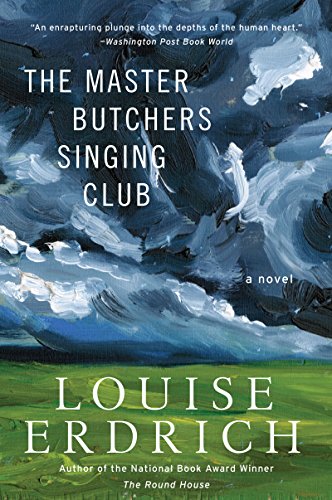
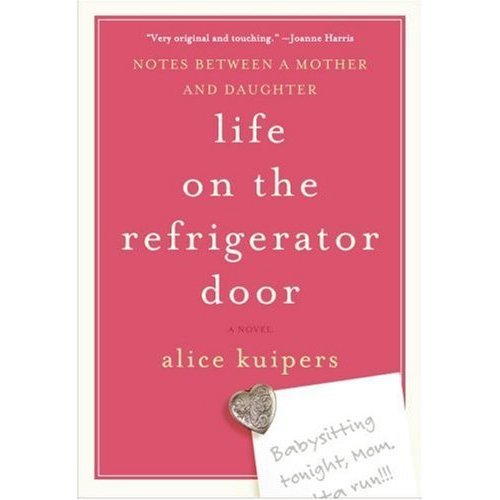
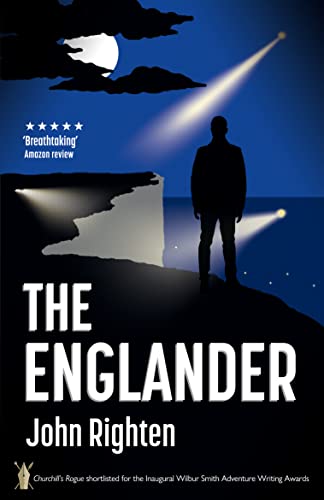






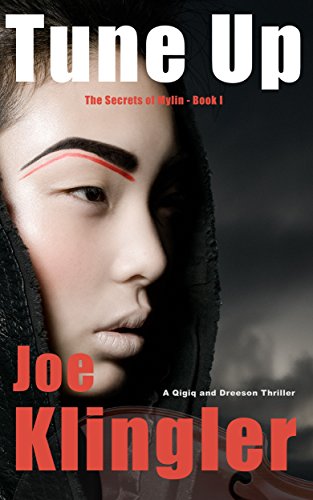

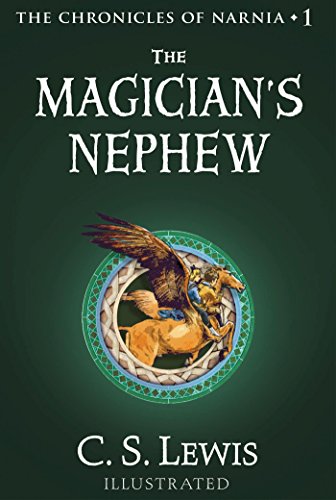

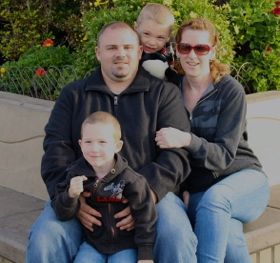
 Kindle Nation Weekender columnist Len Edgerly blogs at
Kindle Nation Weekender columnist Len Edgerly blogs at 
